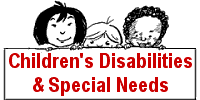 |

| |
|
| ||
Autism - When and Who to Tell - Pro's and Con'sBy Deborah Reber, author of Differently Wired The idea of whom to tell and when came up in a group program I participated in with hparent coach Margaret Webb many years ago. a mother on the call wondered if she wshould disclose her daughter's diagnosis to the parent of another child coming over for a playdate. I loved Magaret's answer, and I still follow her guidelines today. Margaret said who and what she tells about her son's autism is on a "need-to-know basis," meaning that if it's important in a situation that someone understand the specifics of her son's wiring, she discloses. If not and it's none of their business, she doesn't. So the meddlesome neighbor who has no relationship with us? Yeah, she doesn't need to know. But the soccer coach who regularly deals iwth our child's challeniging behavior probably should. Part of the challenge when it comes to unapologetically speaking our truth is that this is very personal stuff, and many of us get flustered or wound up when talking about it. Just as we came up with planned responses to people imposing their beliefs about our child's time line, you can do the same thing here and develop language around neurodiversity, as well as create your own guidelines about what information you're comfortable disclosing, to whom, and in what way." "If it's the diagnosis itself that your uncomfortable with and you feel safer talking in broader strokes, that works, too. My daugher is incredibly energetic and never stops moving, or My son can get really upset when his scedule is disrupted, or My daughter is working way ahead of grade level. That's one of the reasons why I love the term "diferently wired" so much. It gives us a s imple way toconvey our child's atypical nature without going into details in situations where details aren't necessary. Over the years, I've changed my policy about what, how, and to whom to disclose. These days, I tend to be fairly open about Asher's neurodifferences, especially in situations where he'll be interacting with new people and I know his way of being may be confusing without context. Even though many people don't fully understand what ADHD and Asperger's and giftedness entail, mentioning these things at least gives them a heads-up taht they shouldn't expect Asher to participate in a typical way. And that is important for him to feel secure when trying new things. Because Asher's wiring is such a part of who he is and my and our family's story, not talking openly would feel disingenuous. Disclosing has helped our family fully own our reality. This is who we are, and this is how we live our life. So what's the right balance for you? Although it's clear by now that I don't recommend hiding a child's diagnosis from family, close friends, and teachers, I also believe there are ways to be open without grabbing a megaphone and annoucning our truth to the world (or sharing your family's story to thousnds of listeners in the form of a podcast, like I do.) This is a personal choice, and you have to figure out where you're comfortable and what makes the most sense in your world. My advice is to create a personal policy around shairng and make sure it's rooted ina place of love and possibility as opposed to fear. Deborah Reber is the author of Differently Wired, Raising an exceptional child in a conventional world. Reprinted from her book, with author's permission. Copyright protected. |
|
|
Autism Articles Autism Books SHOPPING |
Comeunity : Parenting | Adoption | Special Needs
Comeunity www.comeunity.com Parenting Support for Your Unique Family